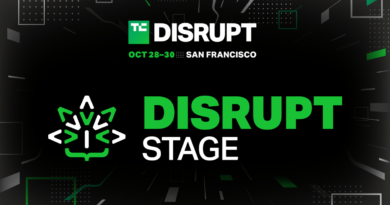How Google Cloud learned to embrace its partner ecosystem
Google Cloud’s annual Next event is happening in San Francisco next week (and we’ll be on the ground to cover all of the announcements), but ahead of the event, Google Cloud today put a spotlight on its partner ecosystem. It’s no secret that in its early days, Google’s cloud efforts were somewhat hindered by its inexperience in working with large enterprises and the consultancies, professional service firms and partners they rely on. But when Thomas Kurian took on the CEO role in 2019, he set Google Cloud on a path to build out that expertise and an open partner ecosystem, which is now starting to pay off.
In a blog post today, Google puts its focus on its AI and data services partners like Confluent, DataRobot, MongoDB, Redis, Datastax, Elastic and Neo4j. Given the current hype around generative AI, that’s perhaps no surprise, but this is also the story of Google Cloud learning how to sell to enterprises and embracing more traditional ways of selling to them.
“We have support from the top all the way to the bottom — top-down from Thomas [Kurian] — on us creating the most open ecosystem we can,” Stephen Orban, the VP for Migrations, Independent Software Vendors (ISVs), and Marketplace at Google Cloud, told me. “We build our products and services on open standards and embrace that from a product development perspective, but we’re also making sure we have the most open ecosystem […] where we have ISVs and partners who both complement and extend our platform that we lean into quite heavily — and we view it as a strategic lever for our growth.” When the ISVs grow, Google Cloud grows, after all.
One muscle Google Cloud had to build over the years is co-selling with its partners. In its early days, Google hoped that its technology would essentially sell itself, but these days, the Google Cloud marketplace is stocked with solutions from hundreds of vendors, many of which have close relationships with Google (and the other hyperclouds) to market and sell their products together.
Alan Chhabra, MongoDB’s executive VP for worldwide partners and international sales, noted that he thinks this change is in part due to Kurian’s experience at Oracle. “I was very excited because I knew of Thomas’s history and experience and accomplishments at Oracle. He was an engineering-first CEO but really understood go-to-market. I consider him very similar to MongoDB CEO Dev Ittycheria. They know how to cross engineering with sales better than most CEOs in the world and I felt like Google needed that at the time — because it is a balance.”
He explained that MongoDB quickly established a close business and engineering partnership with Google after Kurian took over. “We had a phone call and in that call, Thomas explained that he wanted to be the cloud that embraced open source,” Chhabra said.
It’s worth noting that at the time, many open-source businesses, including MongoDB, were wrestling with how to react to the likes of AWS releasing their own services based on existing open source projects. It was at Kurian’s first Cloud Next in 2019 that the company announced that it would deeply integrate products from open-source companies like Confluent, DataStax, Elastic, InfluxData, MongoDB, Neo4j and Redis Labs — a list that looks quite similar to the partners the company is highlighting today. While Google didn’t spell it out at the time, that announcement was very much meant to draw a line between how Google Cloud and AWS were going to work with open-source companies.
That approach is now paying off for Google and its partners. “I remember that moment because they were there for the open-source community,” Chhabra said. “They were there for database and data companies like MongoDB and we remember that and loyalty is important to us. Since then, we’ve had phenomenal growth between the two companies, especially in verticals like retail. And we’ve got a commitment with Google and they’ve committed items to us.”
Data is obviously the lifeblood of AI and even though Microsoft, thanks in large parts to its OpenAI partnership, is often seen as a leader, many enterprises specifically use Google Cloud because of its AI services like Vertex AI.
DataRobot CEO Debanjan Saha, who previously worked at AWS and Google, echoed what I heard from other partners as well: “if you look at Google, for a long time, they were a consumer company. The cloud is probably the first enterprise business for them. And there’s a little bit of learning that Google is going through. I think they made a huge amount of progress in the last three or four years, especially after Thomas Kurian took charge of the cloud business. But still, relatively speaking, Microsoft, for example, has been doing that longer than Google has, but I think Google is learning very fast and the gap is closing.”
He noted areas where Google could still improve, including the processes for co-marketing, co-selling, and marketplace execution. “I know that they’re working really hard on those,” Saha added.
Google’s Orban noted that the company often looks for partners who complement its services. “That’s all about recruiting the ISV, making sure they’re well-architected on Google Cloud with their solution. Most ISVs, I would say, lean towards the SaaS model now. They’re building their SaaS in such a way that it is optimized for going to market with us. It’s about building the joint go-to-market together.”
These days, those discussions also often become about generative AI and how Google can help enterprises leverage it. “GenAI has overnight become a CEO- and boardroom-level conversation, where cloud migrations sometimes are traditionally a CIO-level agenda,” Orban said. “So overnight, we’ve seen the demand from customers from very high up in the organization. And we’re in a very fortunate position where a lot of customers have come to trust and recognize Google as a brand for artificial intelligence.”
He noted that while Google has its own foundational models, it still partners with the likes of Anthropic and Cohere. “Our strategy is quite explicit: to build the most open and innovative AI ecosystem on Earth,” he said. “If our customers want to work with a particular partner, we want to be there to support them and make sure that they have a great experience on Google Cloud.”





